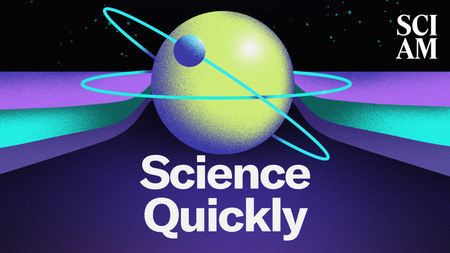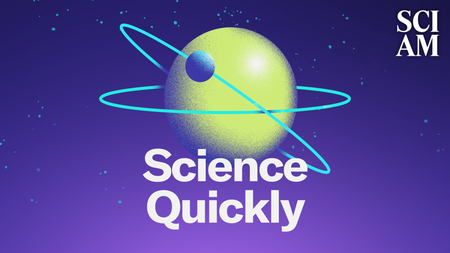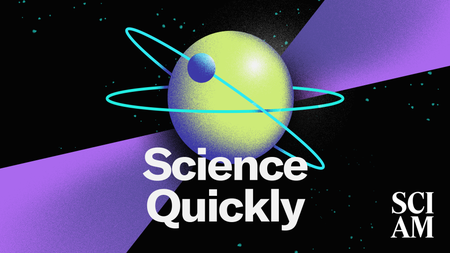
The Climate, Health and Tech Stories We’re Following in 2025
We’re closing out the year with a roundup of the science stories that stood out to our editors in 2024.
Rachel Feltman is former executive editor of Popular Science and forever host of the podcast The Weirdest Thing I Learned This Week. She previously founded the blog Speaking of Science for the Washington Post.

The Climate, Health and Tech Stories We’re Following in 2025
We’re closing out the year with a roundup of the science stories that stood out to our editors in 2024.

Conservation Efforts Are Bringing Pandas, Wolves and Panthers Back from the Brink
There are so many species facing extinction—but today we’re telling stories about the animals making a comeback and the conservationists working hard to help.

Today’s Conservationists Are Inspired by Homeland and Heritage
Modern conservationists are finding new ways to protect wildlife.

Audio and Imagery, Interpreted by AI, Are Improving Conservation Studies
Conservationists have access to massive amounts of data on wildlife—and machine learning is helping them make meaning out of them.

Why Are Zoos Controversial?
Though it may seem paradoxical, zoos can play a big role in modern conservation efforts.

Will AI Audio Replace Podcasts? Not So Fast
Translating complex information into captivating podcasts is no simple task. Is AI up to the challenge?

Leaded Gasoline Tied to Uptick in Mental Health Disorders, and a Mysterious Outbreak Occurs in the DRC
A mysterious outbreak occurs in the Democratic Republic of the Congo, and researchers find evidence that exposure to leaded gasoline was linked to increases in mental illness. Plus, we discuss orcas wearing salmon as hats.

Could Menstruation Be Causing Low Iron Levels?
Underdiagnosed iron deficiency and anemia could be leaving people without affordable fixes for their concerns.

Why Anthony Fauci Is Concerned about Bird Flu and Public Division
“America’s Doctor” says that our common enemy is the danger posed by viruses, not each other.

A Psychologist’s Tips for Avoiding Overconsumption This Holiday Season
Holiday deals are designed to be irresistible. A consumer psychologist explains how to avoid overconsumption and shop sustainably.

RFK, Jr., Could Run the Agency That Oversees CDC, FDA and NIH. Here’s What That Means for Public Health
RFK, Jr., could restructure the CDC, FDA and NIH in pursuit of his flawed vision of public health. Plus, we discuss chimpanzees at play and the first-ever close-up image of a star.

Could AI Ghosts of Ancient Civilizations Help Us Connect with Bygone Cultures?
Social psychologists could turn artificial-intelligence-powered tools like ChatGPT on to writings from past cultures. Will this help us study ancient civilizations?

Unscheduled C-Sections May Depend on the Color of Your Skin
A study of births in New Jersey reveals a troubling disparity between unscheduled C-sections for Black people.

An Off Day in Brooklyn—And on Uranus
A serious bird flu infection in Canada, a troubling projection of future plastic waste and dispatches from a global climate convention.

Reflecting on the Arecibo Message, Our First Attempt to Speak with the Stars
On the 50th anniversary of the “Arecibo message,” we present a reflection on humankind’s first attempt to send a transmission to intelligent life in the cosmos.

Insights into Insects with an Entomologist
Violins, the ink on the Declaration of Independence and other ways that insects shaped human history

Mud Bath Really Does Make Baseballs Easier to Grip
Droughts in 48 of 50 U.S. states, evidence of microplastics mucking up wastewater recycling and the science of a baseball mud bath in this week’s news roundup.

The Impact of Weight Stigma on Health
Focusing on size in health care might be doing more harm than good.

Medieval Elites Cared about Their Zodiac Signs, Too
In medieval times, astrology was considered a serious science, a branch of astronomy. Curator Larisa Grollemond of the Getty Museum, walks us through the medieval zodiac and how someone’s sign decided their day-to-day life.

Your 2024 Election Rundown, from Immigration to Education
The outcome of the 2024 U.S. presidential election could set the climate agenda, reshape public education and shift the dynamics of global science collaboration.

Your 2024 Election Rundown, from Health Care to Nuclear Proliferation
The outcome of the 2024 U.S. presidential election could reshape policies from health care at home to nuclear proliferation abroad

Why We Love to Be Spooked
Host Rachel Feltman and behavioral scientist Coltan Scrivner explore our fascination with fear and what drives our obsession with all things spooky.

Could Weight-Loss Treatments Lead to an Uptick in Scurvy?
We cover a 3.26-billion-year-old meteorite impact, the spread of bird flu and a scurvy case study that serves as a cautionary tale in this week’s news roundup.

Spooky Lakes and the Science of ‘Haunted Hydrology’
An open body of water can be particularly eerie. It’s part of what led creator and author Geo Rutherford to make her viral videos on Spooky Lakes.